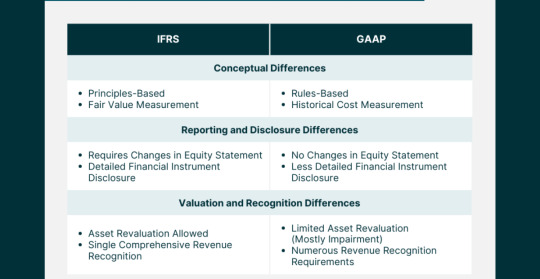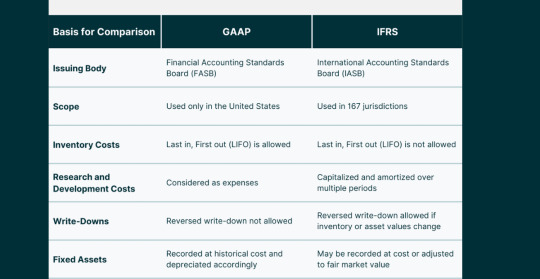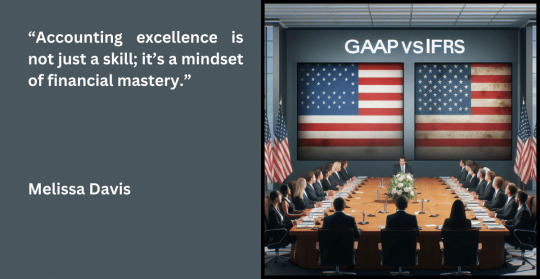#international finance assignment help
Text
Unlocking Success with International Finance Assignment Help

Celebrating one year of academic triumphs with FinanceAssignmentHelp.com and their exceptional international finance assignment help! As a student navigating the intricate world of international finance, I stumbled upon this academic haven when the challenges seemed insurmountable. Today, on my one-year anniversary with their services, I can't help but reflect on how they have been instrumental in shaping my academic journey.
How FinanceAssignmentHelp.com Helped Me:
International finance is a labyrinth of concepts, theories, and practical applications. Navigating through the complexities of exchange rates, capital flows, and risk management can be daunting for even the most dedicated students. That's where FinanceAssignmentHelp.com stepped in to illuminate the path to success.
This online platform offers unparalleled international finance assignment help, providing customized solutions tailored to individual needs. Whether it's understanding the intricacies of foreign exchange markets or deciphering the nuances of global investment strategies, their team of experts has consistently delivered top-notch assistance.
Why I Needed This Service:
The realm of international finance demands a comprehensive understanding of economic principles, market dynamics, and geopolitical factors. As a student with a fervent desire to excel, I found myself grappling with the intricate details of my international finance assignments. The need for clarity and expert guidance became evident, and that's when I turned to FinanceAssignmentHelp.com.
This service became my academic anchor, offering a lifeline when the waters of financial theories seemed too turbulent. Their team not only possesses profound knowledge of international finance but also has a knack for simplifying complex concepts, making them accessible to students at any level.
How to Find This Service:
Discovering FinanceAssignmentHelp.com was a game-changer for me, and it's a journey that began with a simple online search. The website's user-friendly interface and transparent approach stood out immediately. Navigating through their services, I found a dedicated section for international finance assignment help, complete with testimonials from satisfied students.
The process of finding this service is straightforward. A quick search using keywords like "international finance assignment help" led me straight to their website. The clear layout and detailed information about their services instilled confidence from the start. It's evident that they understand the unique challenges students face in international finance courses and are committed to providing targeted assistance.
Steps to Submitting Assignments and Receiving Solutions:
One of the aspects that sets FinanceAssignmentHelp.com apart is the seamless process they've established for submitting assignments and receiving solutions. The user-friendly interface ensures that even those new to online academic assistance can navigate the process effortlessly.
Place an Order:
Start by placing an order on their website, specifying the details of your international finance assignment. This includes the topic, deadline, and any specific requirements provided by your instructor.
Receive a Quote:
Shortly after submitting your order, you'll receive a quote outlining the cost of the service. The transparent pricing model ensures that you know exactly what to expect, with no hidden fees.
Make Payment:
Once you approve the quote, proceed to make the payment securely through their platform. Multiple payment options are available for convenience.
Work Commences:
The moment your payment is processed, their team of experts starts working on your international finance assignment. Regular updates and communication ensure that you're in the loop throughout the process.
Review and Feedback:
Before the final solution is delivered, you have the opportunity to review the work and provide feedback. This collaborative approach ensures that the solution aligns with your expectations.
Receive the Solution:
Once the assignment is finalized and reviewed, you'll receive the solution promptly. The comprehensive and well-explained answers serve as a valuable learning resource, enhancing your understanding of international finance concepts.
Conclusion:
As I celebrate one year of academic excellence with FinanceAssignmentHelp.com, I can confidently say that their international finance assignment help has been a cornerstone of my success. The journey from grappling with complex concepts to mastering the intricacies of international finance has been transformative, thanks to their unwavering support.
For any student navigating the challenging waters of international finance, I wholeheartedly recommend FinanceAssignmentHelp.com. Their commitment to academic excellence, transparent processes, and a team of knowledgeable experts make them the go-to destination for those seeking not just answers, but a profound understanding of international finance. Here's to many more years of partnership and continued success!
#International Finance Assignment Help#Help With International Finance Assignment#Online International Finance Assignment Help#International Finance Assignment Help Service
10 notes
·
View notes
Text
Regulatory Considerations in Hedging International Financial Transactions
Hedging international financial transactions is an important way for the businesses and the investors to protect themselves from changes in exchange rates, interest rates, as well as commodity prices. However, the rules for hedging can also be complicated and different in each country. In this post, we will look at the regulations around hedging international financial transactions to help students in studying the international finance and understanding better. We will include examples, recommend key textbooks as well as academic papers, and give tips for finding online help with international finance homework.

What is Hedging?
Hedging refers to the making of an investment to protect against the risk of price changes in an asset. In international finance, it helps in protecting against the risks from changes in the currency values, interest rates, as well as commodity prices.
Key Regulatory Considerations
Financial Market Regulations: Each country has its own set of rules for using derivatives and several other hedging tools. It is important to know the specific regulations in your area, including reporting needs, margin requirements, as well as limits on positions.
Accounting Standards: Standards like the International Financial Reporting Standards (IFRS) and Generally Accepted Accounting Principles (GAAP) determine how to record as well as report hedging transactions in financial statements. Following these standards is the key for clear and accurate financial reporting.
Tax Implications: Hedging transactions can also affect your taxes, such as when you recognize income, how you can deduct losses, and the potential tax credits. Consulting tax professionals can also help you understand the tax rules in your area as well as optimize your hedging strategy.
Regulatory Oversight: Bodies like the Securities and Exchange Commission (SEC) in the US and the Financial Conduct Authority (FCA) in the UK monitor financial markets as well as enforce hedging regulations. Keeping up with regulatory updates and complying with them is also crucial to avoid legal and financial risks.
Disclosure Requirements: Many places require you to disclose the details about your hedging transactions, such as what the hedge is for, the risk it covers, and how effective it is. Transparent disclosure helps maintain market integrity as well as protect investors.
Examples of Regulatory Challenges:
Cross-Border Transactions: The Hedging that involves multiple countries can be tricky because every country has their own legal as well as regulatory rules.
Emerging Markets: Hedging in emerging markets can also be challenging due to less developed regulations, limited market activity, as well as potential political risks.
Complex Instruments: Using the complicated derivatives like options and swaps for hedging also requires specialized knowledge and a deep understanding of detailed regulatory rules.
Computational Illustrations: Hedging with Derivatives
Example: Currency Hedging with Forward Contracts
Assume a U.S. company expects to receive €1 million in three months and wants to hedge
against the risk of a depreciating euro.
Spot Rate (Current): 1 EUR = 1.10 USD
Forward Rate (Three Months): 1 EUR = 1.08 USD
The company enters a forward contract to sell €1 million at the forward rate of 1.08
USD/EUR.
Value of €1 million at forward rate = €1,000,000 * 1.08 = $1,080,000
Without hedging, if the euro depreciates to 1 EUR = 1.05 USD:
Value of €1 million = €1,000,000 * 1.05 = $1,050,000
Result: The hedging strategy protects the company from a potential loss of $30,000.
Advantages of Understanding Regulatory Considerations in Hedging International Financial Transactions
Legal Compliance: By understanding the specific regulations in each jurisdiction, you can avoid legal troubles and penalties. Compliance with local laws ensures that your business operations run smoothly and lawfully, preventing costly legal disputes and sanctions.
Financial Reporting Accuracy: Adhering to accounting standards such as IFRS and GAAP, and fulfilling disclosure requirements, ensures that your financial statements are accurate and transparent. This is crucial for stakeholders, including investors and regulators, who rely on clear and truthful financial reporting to make informed decisions.
Tax Optimization: Being aware of the tax implications of your hedging transactions allows you to structure them in a way that minimizes your tax liabilities and maximizes potential tax benefits. Consulting with tax professionals helps you understand and navigate the tax rules in different jurisdictions, optimizing your overall financial strategy.
Market Integrity: Compliance with regulatory oversight and disclosure requirements helps maintain market integrity. Transparent and honest disclosure of hedging transactions protects investors and builds trust in the financial markets, contributing to a fair and stable trading environment.
Competitive Advantage: Staying informed about and compliant with international regulations can give your business a competitive edge. It shows that your company is reliable and committed to best practices in the global market. This can enhance your reputation, attract more investors, and open up opportunities for growth and expansion in new markets.
Understanding Hedging: What Makes Our International Finance Homework Help Stand Out
Need help with hedging? Our team of experienced finance experts is here to provide personalized solutions for all your academic needs. If you are struggling with numerical problems, we have got you covered. Having trouble understanding hedging, capital structure, or investment analysis? We are here to offer you with thebest international finance homework help for solving the most complicated hedging problems you can find your textbooks and coursework.
What makes us different? Our strong commitment to your success. We do not just give you answers, we provide clear explanations, detailed calculations in Excel, as well as software outputs to ensure you understand the concepts thoroughly. No worries about plagiarism or late submissions. Our solutions are 100% original and always delivered on time. Do not let finance assignments hold you back. Invest in your academic success today with our international finance assignment help!
Textbooks and Papers for Reference
Textbooks:
International Financial Management by Jeff Madura
Multinational Business Finance by David K. Eiteman, Arthur I. Stonehill, and Michael H. Moffett
Academic Papers:
Hull, J. (2006). "Options, Futures, and Other Derivatives." Journal of Finance.
Black, F., & Scholes, M. (1973). "The Pricing of Options and Corporate Liabilities." Journal of Political Economy.
0 notes
Text
Empower yourself for success with Finance Assignment Help. Our expert guidance and tailored solutions ensure students excel in their finance coursework. Gain confidence, achieve top grades, and unlock your academic potential with our assistance.
0 notes
Text
Navigating the Complex World of Finance: An Interview with an International Finance Assignment Help Expert

As the global economy continues to evolve, the field of international finance becomes increasingly intricate and challenging for students. To shed light on this complex subject and provide valuable insights, we sat down for an enlightening conversation with an International Finance Assignment Help expert. Our goal was to unravel the mysteries of international finance, understand the challenges students face, and explore the importance of seeking assistance when tackling assignments in this dynamic field.
Student (S): Thank you for joining us today. To kick things off, could you share a bit about your background and expertise in international finance?
International Finance Assignment Help Expert (E): Certainly! I have been immersed in the world of finance for over a decade, specializing in international finance. My journey began with a passion for understanding how financial markets operate on a global scale. I pursued advanced degrees in finance and have since been dedicated to helping students navigate the complexities of international finance through assignment assistance and guidance.
S: That's impressive. International finance can be quite overwhelming for students. Can you highlight some common challenges they face when dealing with assignments in this field?
E: Absolutely. One of the primary challenges students encounter is the extensive range of topics within international finance. From exchange rates and international investment to risk management and financial markets, the sheer breadth of the subject can be daunting. Additionally, the dynamic nature of global financial markets means that students must stay updated on the latest trends and geopolitical events, adding another layer of complexity to their assignments.
S: Given these challenges, how can seeking International Finance Assignment Help benefit students?
E: Seeking assistance can provide students with several advantages. Firstly, it offers a personalized approach to learning. Many students find that one-on-one guidance helps them grasp intricate concepts more effectively. Moreover, assignment help services often employ experts who have practical experience in the field, offering real-world insights that go beyond textbook knowledge. This can be invaluable in understanding the practical applications of international finance theories.
S: That makes sense. When students approach you for help, what are some of the common areas they struggle with the most?
E: A recurring theme is the application of theoretical concepts to real-world scenarios. Students often find it challenging to bridge the gap between what they learn in class and how it translates to practical situations. Additionally, understanding the intricacies of currency markets, managing exchange rate risk, and comprehending the impact of global economic events on financial decisions are areas where many students seek clarification.
S: How do you approach guiding students through these challenging areas?
E: I believe in a hands-on approach. Rather than just providing answers, I strive to guide students through the thought processes and methodologies involved in solving problems. This not only helps them complete their assignments but also enhances their analytical and problem-solving skills, which are crucial in the field of international finance. It's about fostering a deeper understanding of the subject matter.
S: That sounds like a comprehensive approach. Speaking of real-world applications, can you share any examples of how international finance concepts play a role in today's global business landscape?
E: Certainly. Take, for instance, multinational corporations. They operate in multiple countries, dealing with various currencies and facing diverse financial challenges. Understanding how to manage exchange rate risk and make informed financial decisions in such a complex environment is crucial. Additionally, global economic events, like trade tensions or geopolitical shifts, can have a profound impact on financial markets, influencing investment decisions and risk management strategies.
S: It's fascinating how these concepts directly influence business operations. For students aspiring to enter the field of international finance, what advice would you offer?
E: My advice would be to embrace curiosity and stay curious. International finance is a dynamic field that requires a continuous willingness to learn and adapt. Stay updated on global economic trends, explore case studies, and seek practical experiences through internships or projects. And, of course, don't hesitate to seek help when needed. The field is vast, and collaboration with experts can provide valuable perspectives that enhance your understanding.
S: Wise words. Finally, how do you see the future of international finance education evolving, and what role will assignment help services play in this evolution?
E: The future holds exciting possibilities for international finance education. As the global economy becomes more interconnected, the demand for professionals with expertise in international finance will likely increase. In response, educational institutions may further integrate practical applications and real-world scenarios into their curriculum. Assignment help services will continue to play a crucial role by providing students with the support they need to excel in this evolving landscape, ensuring that they are well-prepared for the challenges of the global financial arena.
In conclusion, our conversation with the International Finance Assignment Help expert has shed light on the intricate world of international finance. As students grapple with complex assignments, seeking assistance from experienced professionals proves to be a valuable resource. By fostering a deeper understanding of theoretical concepts, bridging the gap between theory and practice, and providing real-world insights, these experts contribute significantly to the success of aspiring finance professionals in an ever-changing global economy.
#international finance Assignment Help#Help With international finance Assignment#Online international finance Assignment Help#international finance assignment help service
0 notes
Text
GAAP vs IFRS

Decoding US Accounting Rules: GAAP vs IFRS | Expert Insights in 2024
Navigate the GAAP vs IFRS debate in US Accounting effortlessly. Gain expert insights, make sense of regulations. Your guide to financial clarity.
The evolving landscape of accounting standards unfolds a nuanced debate between the Generally Accepted Accounting Principles and the International Financial Reporting Standards. These two frameworks, while sharing a common goal of transparent financial reporting, diverge in their approaches, giving rise to a multifaceted discourse with far-reaching implications for the financial world.

1. Introduction
The evolution of accounting standards has witnessed the crystallization of two dominant frameworks – General Accounting Accepted Principles and International Financial Reporting Standards. In the labyrinth of financial reporting, companies grapple with choosing between these standards, each with its unique history, principles, and global relevance. The debate surrounding GAAP vs IFRS is not a mere academic exercise but a pivotal consideration with implications for investment decisions, legal compliance, and the global financial landscape.
1.1. Evolution of Accounting Standards
The journey of accounting standards traces back to the aftermath of the 1929 stock market crash when the need for standardized, transparent financial reporting became glaringly apparent. What emerged were the General Accounting Accepted Principles, designed to restore investor confidence by providing a reliable framework for financial statements. Over time, GAAP has become deeply embedded in the U.S. financial system, shaping the way companies communicate their financial health.
On the global stage, the International Financial Reporting Standards evolved as a response to the growing interconnectedness of economies. The International Accounting Standards Board (IASB) took the reins in developing IFRS, aiming for a standardized global language of financial reporting. This set the stage for a two-pronged approach to financial reporting standards – General Accounting Accepted Principles dominating in the U.S. and International Financial Reporting Standards gaining traction internationally.
1.2. The Crucial Role of GAAP and IFRS
GAAP stands as the bedrock of accounting standards in the United States, overseen by the Financial Accounting Standards Board (FASB). Its principles, rooted in historical cost, revenue recognition, and matching, provide stability and a familiar structure for U.S. businesses. On the other hand, IFRS, under the stewardship of the IASB, operates as a global player, emphasizing fair value, substance over form, and materiality.
The significance of General Accounting Accepted Principles lies in its historical context and its alignment with the unique needs of the U.S. business environment. Its principles have served as a guiding light for American companies, offering a consistent framework for financial reporting. International Financial Reporting Standards, with its global perspective, caters to the interconnectedness of today’s businesses, providing a common language for multinational corporations.
1.3. Navigating the GAAP vs IFRS Dilemma
The choice between General Accounting Accepted Principles and International Financial Reporting Standards is not a one-size-fits-all decision. Companies grapple with a complex decision-making process, considering factors such as their geographical reach, industry nuances, and investor preferences. This debate is not isolated to boardrooms; it resonates in financial markets, legal proceedings, and regulatory landscapes, shaping the very fabric of financial reporting practices.

2. Understanding GAAP
2.1. The Foundation of GAAP
a. Historical Roots and Evolution
GAAP’s roots delve deep into the need for a standardized accounting framework post the 1929 stock market crash. FASB emerged as a response to the chaos that ensued, charged with the responsibility of establishing and improving financial accounting and reporting standards. The journey of GAAP has been one of continuous evolution, adapting to the changing business landscape and regulatory requirements.
b. FASB’s Ongoing Influence
The Financial Accounting Standards Board (FASB) stands as the guardian of GAAP, playing a pivotal role in setting and refining accounting standards. FASB’s mission goes beyond rule-making; it seeks to improve financial reporting, providing transparency and relevance in financial statements. The ongoing influence of FASB ensures that GAAP remains adaptive and responsive to the dynamic nature of business transactions.
2.2. Core Principles Anchoring GAAP
a. Embracing the Historical Cost Principle
One of the cornerstones of GAAP is the historical cost principle, dictating that assets should be recorded at their original cost. This principle provides stability and reliability in financial statements, allowing users to assess the financial health of a company based on the actual cost of its assets at the time of acquisition. While critics argue that this approach may not reflect current market values, proponents emphasize the prudence and consistency it offers.
b. Revenue Recognition as a Cornerstone
GAAP’s approach to revenue recognition centers on the realization and earned criteria. Revenue is recognized when it is realized or realizable and earned. This conservative approach ensures that revenue is not prematurely recognized, aligning with the matching principle. While this method may defer recognizing revenue until later stages in the sales cycle, it safeguards against potential overstatement and presents a cautious picture to investors.
c. The Significance of the Matching Principle
The matching principle is a guiding force in GAAP, emphasizing the alignment of expenses with the revenue they generate. This principle ensures that the costs associated with generating revenue are recognized in the same period as the revenue itself, presenting a more accurate portrayal of a company’s profitability. While adhering to the matching principle might result in lower reported profits during high-revenue periods, it provides a more realistic long-term view.
2.3. Scrutinizing Criticisms and Recognizing Limitations
a. Rigidity vs. Stability
One common criticism leveled against GAAP is its perceived rigidity, particularly regarding the historical cost principle. Critics argue that this approach may not capture the true economic value of assets, especially in industries with rapidly changing market conditions. However, proponents assert that this rigidity provides stability and consistency, allowing for easier comparison across periods and industries.
b. The Balancing Act of Revenue Recognition
The conservative approach to revenue recognition in GAAP has faced scrutiny for potentially understating a company’s immediate financial performance. Critics argue that this caution may not be reflective of a company’s true economic position, especially in industries where revenue realization is instantaneous. However, the balancing act lies in mitigating the risk of premature revenue recognition, ensuring financial statements maintain integrity and accuracy.
c. Challenges in Adhering to the Matching Principle
While the matching principle aligns expenses with revenue, critics contend that it introduces complexities in determining the direct association between costs and specific revenue streams. This challenge becomes more pronounced in industries with diverse revenue sources. Despite these challenges, adhering to the matching principle remains integral in presenting a holistic view of a company’s financial health, helping investors make informed decisions.

3. Embracing IFRS
3.1. IFRS: A Global Framework
a. The Rise of International Financial Reporting Standards
The emergence of IFRS marks a significant shift towards a globalized approach to financial reporting. As businesses expanded internationally, the need for a common accounting language became evident. IFRS, under the stewardship of the International Accounting Standards Board (IASB), rose to prominence as a framework that transcends borders, providing a standardized set of principles for companies operating on the world stage.
b. IASB’s Pivotal Role in Shaping IFRS
The International Accounting Standards Board (IASB) shoulders the responsibility of developing and maintaining IFRS. Unlike GAAP, IFRS operates under a principles-based approach, focusing on broad principles rather than detailed rules. This flexibility allows for easier adaptation to diverse business environments, making IFRS an attractive choice for multinational corporations seeking a harmonized approach to financial reporting.
3.2. Unpacking Core Principles of IFRS
a. Fair Value Measurement: A Paradigm Shift
One of the fundamental differences between GAAP and IFRS lies in the approach to asset valuation. While GAAP predominantly adheres to the historical cost principle, IFRS leans towards fair value measurement. Fair value reflects the current market value of assets, providing a more dynamic and responsive perspective. Critics argue that fair value introduces volatility, but proponents emphasize its relevance in capturing real-time economic conditions.
b. Substance Over Form: Emphasizing Economic Reality
In IFRS, the substance of transactions takes precedence over their legal form. This principle ensures that financial statements reflect the economic reality of transactions, promoting transparency and accuracy. While this approach aligns with the overarching goal of providing relevant information to users, it requires careful judgment and interpretation, potentially introducing subjectivity in financial reporting.
c. Materiality’s Role in Flexibility
IFRS introduces greater flexibility in materiality judgments compared to GAAP. Materiality refers to the threshold at which information becomes relevant to users. The more flexible stance in IFRS allows entities to exercise judgment in determining what information is material, considering both quantitative and qualitative factors. This flexibility, while enhancing the adaptability of IFRS, also raises concerns about potential inconsistencies in financial reporting.
3.3. Weighing Advantages and Drawbacks
a. IFRS Flexibility: A Double-Edged Sword
The flexibility embedded in IFRS is both its strength and weakness. Proponents argue that this adaptability makes IFRS suitable for diverse business environments, allowing for easier integration with various industries and legal systems. However, critics contend that this very flexibility can lead to inconsistencies and a lack of comparability, challenging the reliability of financial statements for investors and stakeholders.
b. Global Appeal vs. Application Challenges
The global nature of IFRS makes it an attractive choice for multinational companies aiming for consistency in financial reporting across borders. The common language of IFRS facilitates international transactions and fosters a seamless global financial landscape. However, the application of IFRS can pose challenges in jurisdictions with varying legal and regulatory frameworks, potentially leading to complexities in implementation and interpretation.

4. Key Differences Between GAAP and IFRS
4.1. Delving into Variances
a. Revenue Recognition: The GAAP-IFRS Divergence
One of the pivotal differences between GAAP and IFRS lies in the recognition of revenue. While both frameworks aim to depict the economic reality of transactions, their approaches diverge in certain key aspects. GAAP tends to be more prescriptive, providing specific guidelines for various industries, whereas IFRS adopts a broader principles-based approach, allowing entities more room for interpretation.
b. Inventory Valuation: Differing Approaches
The treatment of inventory valuation varies significantly between GAAP and IFRS. GAAP typically follows a specific set of rules for valuing inventory, such as the Last In, First Out (LIFO) or First In, First Out (FIFO) methods. In contrast, IFRS permits the use of various methods, including FIFO and weighted average, offering companies more flexibility in choosing an approach that aligns with their specific business dynamics
c. Consolidation Methods: Navigating Complexity
Consolidation methods, particularly in the context of subsidiaries and investments, showcase differences between GAAP and IFRS. GAAP often employs a more rule-based approach, specifying conditions for consolidation. In contrast, IFRS focuses on a principles-based approach, considering the substance of relationships rather than relying on rigid criteria. This variance introduces nuances in financial reporting, influencing how companies present their financial position and performance.
4.2. The Impact on Financial Statements
a. Shaping Investor Perception
The differences in revenue recognition, inventory valuation, and consolidation methods contribute to variations in financial statements produced under GAAP and IFRS. Investors, as key stakeholders, must navigate these differences to gain an accurate understanding of a company’s financial health. The choice between GAAP and IFRS significantly shapes investor perception, influencing investment decisions and risk assessments.
b. Decision-Making Dynamics
Companies, in choosing between GAAP and IFRS, must consider the implications on decision-making dynamics. The framework adopted affects how financial information is presented, potentially influencing strategic decisions, mergers and acquisitions, and capital-raising activities. Understanding the impact of these frameworks on decision-making is crucial for entities operating in dynamic and competitive business environments.
4.3. Global Adoption Trends: A Comparative Analysis
The adoption trends of GAAP and IFRS provide insights into the global dynamics of financial reporting standards. While GAAP maintains dominance within the United States, IFRS has gained traction in numerous jurisdictions worldwide. Understanding the factors influencing these trends, such as regulatory requirements, investor preferences, and global market integration, sheds light on the evolving landscape of accounting standards.
“Accounting isn’t just about profits and losses; it’s about sculpting the financial soul of a company.” Michael Johnson

5. The Evolution of Accounting Standards
5.1. GAAP’s Historical Odyssey
a. Post-1929: A Catalyst for Change
The stock market crash of 1929 served as a catalyst for rethinking the approach to financial reporting. The chaos that ensued prompted the establishment of standardized accounting principles, laying the foundation for what would later become GAAP. The primary goal was to restore investor confidence by providing a reliable framework for financial statements, reducing uncertainty and fostering stability in financial markets.
b. Amendments and Updates: Shaping GAAP’s Trajectory
GAAP’s journey has not been static; it has evolved through amendments and updates to address emerging challenges and align with changing business dynamics. The Financial Accounting Standards Board (FASB) plays a pivotal role in shaping GAAP, ensuring that it remains relevant, transparent, and responsive to the needs of companies and investors. The ongoing commitment to refinement reflects a dedication to maintaining the integrity of financial reporting.
5.2. Internationalization Efforts
a. Pioneering Attempts at Global Standardization
As globalization gained momentum, so did the recognition of the need for global accounting standards. Efforts were made to align U.S. GAAP with international standards, but achieving a universal standard proved challenging. The push for global standardization gained traction with the rise of IFRS, offering a framework that transcends national boundaries and facilitates consistency in financial reporting for multinational corporations.
b. The Challenge of Aligning U.S. Standards Globally
While the concept of global accounting standards gained support, aligning U.S. GAAP with international standards presented formidable challenges. The unique legal, regulatory, and cultural landscape in the United States posed hurdles to seamless integration. Despite these challenges, the pursuit of convergence and harmonization continued, reflecting the recognition of the interconnectedness of global economies.
5.3. Convergence Initiatives
a. The Ongoing Pursuit of Harmonization
Convergence initiatives aimed at harmonizing GAAP and IFRS gained prominence in the early 21st century. The objective was to reduce disparities between the two frameworks, fostering a more standardized global approach to financial reporting. While full convergence remained elusive, progress was made in aligning specific standards, reflecting a commitment to minimizing inconsistencies and facilitating ease of comparison for investors and stakeholders.
b. Prospects and Hurdles in a Unified Global Standard
The prospects of a unified global accounting standard remain a tantalizing goal, promising enhanced comparability and consistency in financial reporting. However, hurdles such as divergent national interests, legal complexities, and varying levels of standard-setting infrastructure continue to challenge the realization of this vision. Navigating these obstacles requires ongoing collaboration and a commitment to the overarching goal of global financial transparency.

6. Regulatory Bodies Influencing GAAP
6.1. FASB’s Pivotal Role
a. GAAP’s Guardian: The FASB Mandate
The Financial Accounting Standards Board (FASB) stands as the guardian of GAAP, wielding influence over the development and refinement of accounting standards. FASB’s mandate goes beyond rule-making; it encompasses a commitment to improving financial reporting, ensuring that standards are not only relevant but also responsive to the evolving needs of businesses and investors.
b. FASB’s Mission in Financial Reporting Improvement
FASB’s mission revolves around the improvement of financial reporting through the development of high-quality accounting standards. The board operates under a due process system, seeking input from various stakeholders, including investors, auditors, and preparers of financial statements. This collaborative approach ensures that GAAP remains a robust and adaptive framework that reflects the intricacies of modern business transactions.
6.2. SEC’s Watchful Eye
a. SEC’s Authority in Recognizing GAAP Standards
The Securities and Exchange Commission (SEC) plays a crucial role in the oversight of financial reporting in the United States. While the FASB sets accounting standards, the SEC has the authority to recognize and prescribe the principles used in the preparation of financial statements for publicly traded companies. This dual-layered system ensures a balance between industry expertise and regulatory oversight in shaping GAAP.
b. SEC’s Contributions to Financial Transparency
The SEC’s contributions to financial transparency extend beyond its recognition of GAAP standards. The commission actively engages in rule-making and enforcement to ensure that companies adhere to accounting principles and provide accurate and timely financial information to investors. The synergy between the SEC and FASB reinforces the integrity of financial reporting in the U.S. capital markets.
6.3. AICPA’s Industry Impact
a. AICPA: Nurturing Professional Standards
The American Institute of Certified Public Accountants (AICPA) plays a vital role in shaping professional standards within the accounting industry. While not directly involved in setting GAAP, the AICPA contributes to the development of ethical and professional standards that guide the conduct of accountants. This commitment to excellence enhances the credibility of financial reporting, reinforcing the trust that stakeholders place in GAAP.
b. Industry-Wide Compliance through AICPA Guidance
The AICPA’s influence extends beyond standards development to encompass industry-wide compliance. The organization provides guidance on best practices, ethical considerations, and emerging issues within the accounting profession. This guidance ensures a cohesive and ethical approach to financial reporting, aligning with the principles embedded in GAAP and contributing to the overall reliability of financial statements.

7. International Bodies Shaping IFRS
7.1. IASB’s Global Mandate
a. IASB’s Significance in IFRS Development
The International Accounting Standards Board (IASB) holds a central role in the development and maintenance of IFRS. Unlike the FASB’s role in the U.S., the IASB operates on a global scale, aiming to set accounting standards that are applicable and relevant to entities worldwide. The IASB’s commitment to a principles-based approach reflects its recognition of the diverse needs of global businesses.
b. A Global Perspective in Standard Setting
The IASB’s global perspective is intrinsic to its standard-setting process. The board considers input from various regions, industries, and stakeholders, ensuring that IFRS reflects the nuances of international business. The principles-based approach allows for adaptability, catering to the diverse legal, economic, and cultural landscapes in which entities operate globally.
7.2. IFRIC’s Interpretative Role
a. Navigating Grey Areas: IFRIC’s Guidance
The International Financial Reporting Interpretations Committee (IFRIC) plays a crucial role in navigating interpretative challenges within IFRS. Given the principles-based nature of IFRS, grey areas may arise, requiring clarification and guidance. IFRIC addresses these challenges by providing interpretations and guidance, ensuring consistent application of IFRS standards across diverse industries and jurisdictions.
b. Consistent Application of IFRS Standards
Consistency in the application of IFRS standards is paramount to ensuring comparability and reliability in financial reporting. IFRIC’s interpretative role contributes to this objective by offering guidance on ambiguous or complex issues. This commitment to clarity and consistency aligns with the overarching goal of IFRS – to provide a common language for financial reporting that transcends geographical and industry-specific boundaries.
7.3. Monitoring Board’s Oversight
a. Ensuring Independence in Standard Setting
The Monitoring Board plays a crucial oversight role in ensuring the independence and effectiveness of the IFRS Foundation, which houses the IASB. Independence is a cornerstone of credible standard-setting, and the Monitoring Board’s role is to safeguard the integrity of the standard-setting process. This commitment to independence reinforces the trust that global stakeholders place in IFRS as a reliable and unbiased framework.
b. The Role of the Monitoring Board in IFRS Integrity
The Monitoring Board’s vigilance extends beyond independence to the broader integrity of the IFRS framework. By overseeing the activities of the IFRS Foundation and IASB, the Monitoring Board contributes to the credibility of IFRS as a global accounting standard. This oversight ensures that IFRS continues to meet the evolving needs of global financial markets and remains a trusted framework for transparent financial reporting.

8. Impact on Financial Reporting
8.1. Side-by-Side Comparison
a. Financial Statement Variances: GAAP vs IFRS
A side-by-side comparison of financial statements prepared under GAAP and IFRS reveals variances arising from differences in principles, approaches, and interpretations. These variances extend to revenue recognition, asset valuation, and consolidation methods, influencing the reported financial position and performance of entities. Investors and analysts must navigate these differences to glean accurate insights into a company’s financial health.
b. Interpretation Challenges for Investors
Investors face interpretation challenges when analyzing financial statements prepared under different frameworks. Understanding the nuances of GAAP and IFRS differences is crucial for making informed investment decisions. The ability to discern how specific accounting choices impact financial metrics empowers investors to evaluate risks, assess potential returns, and navigate the complexities of the global investment landscape.
8.2. Revenue Recognition Dynamics
a. The Nuances of Revenue Recognition
The nuances of revenue recognition under GAAP and IFRS reflect the underlying philosophies of each framework. GAAP, with its prescriptive guidelines, provides specific criteria for recognizing revenue in various industries. In contrast, IFRS adopts a broader approach, emphasizing the substance of transactions over rigid rules. Navigating these nuances requires a deep understanding of industry dynamics and the specific requirements of each framework.
b. Implications for Investor Decision-Making
The implications of revenue recognition dynamics extend to investor decision-making. Differences in when and how revenue is recognized can influence perceptions of a company’s immediate financial performance. Investors must factor in these nuances to make informed decisions, considering the impact on key financial metrics such as earnings per share, profit margins, and return on investment.
8.3. Asset Valuation Approaches
a. Valuation Philosophies: Fair Value vs. Historical Cost
The variance in asset valuation philosophies between GAAP and IFRS introduces complexities in financial reporting. GAAP’s adherence to historical cost provides stability and consistency, albeit potentially understating the current market value of assets. In contrast, IFRS’s emphasis on fair value introduces a more dynamic and responsive approach to asset valuation. Companies must navigate the trade-offs between stability and accuracy in presenting their financial position.
b. Balancing Accuracy and Stability in Asset Reporting
Balancing accuracy and stability in asset reporting requires careful consideration of the trade-offs between fair value and historical cost. Companies must weigh the benefits of presenting current market values against the potential volatility introduced by fair value measurements. Striking the right balance ensures that financial statements accurately reflect the economic reality of a company’s assets while providing stakeholders with a stable and reliable foundation for decision-making.

9. Challenges in Adoption
9.1. Corporate Resistance Factors
a. Unpacking Corporate Hesitations
The decision to adopt new accounting standards, whether transitioning from GAAP to IFRS or vice versa, is met with corporate hesitations. Companies fear the potential disruptions, costs, and uncertainties associated with the transition. Understanding these resistance factors is essential for regulatory bodies, standard-setters, and industry stakeholders to develop strategies that facilitate smoother adoptions and ensure widespread compliance.
b. Overcoming Corporate Resistance Challenges
Overcoming corporate resistance challenges requires a multi-faceted approach. Clear communication on the benefits of the new standards, comprehensive training programs, and support mechanisms can alleviate concerns. Regulators and standard-setters must collaborate with industry representatives to address specific challenges faced by different sectors, fostering a cooperative environment conducive to successful adoptions.
9.2. Implementation Costs
a. Financial and Operational Impacts
The implementation of new accounting standards incurs financial and operational impacts for companies. Costs associated with staff training, system upgrades, and adjustments to internal processes contribute to the overall financial burden. Companies must carefully assess these costs and develop comprehensive implementation plans to mitigate disruptions and ensure a seamless transition to the new standards.
b. Strategies for Mitigating Implementation Costs
Strategies for mitigating implementation costs involve proactive planning, phased adoption approaches, and leveraging technology. Companies can benefit from engaging with industry peers that have successfully navigated similar transitions, learning from best practices and challenges. Collaboration between standard-setters, regulatory bodies, and industry associations plays a crucial role in developing strategies that balance the need for improved standards with the practicalities of implementation.
9.3. Training and Skill Gaps
a. The Need for Specialized Training
The adoption of new accounting standards introduces the need for specialized training to ensure that professionals possess the skills required for compliance. Training programs must address the nuances of the new standards, focusing on changes in accounting principles, reporting requirements, and the application of new methodologies. Bridging skill gaps is crucial for maintaining the integrity and accuracy of financial reporting.
b. Collaborative Approaches to Skill Development
Collaborative approaches to skill development involve partnerships between educational institutions, professional organizations, and industry players. The goal is to create comprehensive training programs that equip professionals with the knowledge and skills necessary for successful compliance. Standard-setters and regulators can play a pivotal role in promoting and endorsing such collaborative initiatives, fostering a culture of continuous learning within the accounting profession.

10. Legal Implications for Corporations
10.1. Legal Challenges in GAAP Compliance
a. Litigation Risks in GAAP Adherence
The legal challenges associated with GAAP compliance include litigation risks arising from alleged non-compliance. Companies adhering to GAAP must navigate the complexities of the legal landscape, ensuring that their financial statements withstand scrutiny. Implementing robust internal controls, engaging in transparent communication, and staying abreast of legal developments are essential strategies for mitigating litigation risks.
b. Strategies for Legal Compliance in GAAP
Strategies for legal compliance in GAAP involve proactive measures to minimize litigation risks. This includes fostering a culture of compliance within the organization, conducting regular internal audits, and seeking legal counsel to ensure alignment with evolving regulations. Companies that prioritize legal compliance contribute to the overall stability and trustworthiness of the financial reporting ecosystem.
10.2. Legal Battles in IFRS Adoption
a. Navigating Legal Challenges in IFRS Transition
The transition to IFRS introduces legal battles that companies must navigate effectively. Disputes may arise over interpretations of IFRS standards, potentially leading to litigation. Companies must engage in comprehensive risk assessments, understanding the legal implications of IFRS adoption, and implementing measures to mitigate potential legal challenges.
b. Legal Safeguards for Companies Adopting IFRS
Legal safeguards for companies adopting IFRS involve proactive steps to minimize legal risks. This includes engaging legal experts in the transition process, conducting impact assessments, and implementing robust governance structures. Companies that prioritize legal safeguards position themselves to navigate the complexities of IFRS adoption with resilience and integrity.
10.3. Risk Mitigation Strategies
a. Legal Safeguards: Mitigating Risks in Regulatory Compliance
Legal safeguards play a pivotal role in mitigating risks associated with regulatory compliance. Companies must implement effective risk management strategies, including regular legal audits, compliance training, and a responsive approach to legal developments. A proactive stance towards legal safeguards enhances a company’s ability to navigate the intricate landscape of financial reporting standards.
b. Strategies for Minimizing Legal Challenges in Reporting Standards
Strategies for minimizing legal challenges in reporting standards involve a holistic approach to risk management. This includes collaboration with legal professionals, staying informed about evolving regulations, and fostering a culture of compliance within the organization. Companies that prioritize these strategies not only mitigate legal challenges but also contribute to the overall reliability and credibility of financial reporting standards.

11. Investor Perspectives
11.1. Investor Preferences
a. Surveying Investor Preferences: GAAP or IFRS?
Understanding investor preferences is crucial in the GAAP vs. IFRS discourse. Surveys play a valuable role in gauging investor sentiment and preferences regarding financial reporting standards. The insights gleaned from such surveys inform standard-setters, regulators, and companies in aligning financial reporting practices with investor expectations.
b. Implications of Investor Preferences on Reporting Standards
The implications of investor preferences on reporting standards are far-reaching. Companies that align with investor preferences enhance transparency and communication, fostering trust and confidence. Standard-setters and regulators, informed by investor feedback, can shape standards that not only meet regulatory requirements but also cater to the information needs of investors in a dynamic and competitive market.
11.2. Impact on Investment Decision-Making
a. Investor Decision Dynamics: GAAP vs IFRS
Investor decision dynamics are influenced by the choice between GAAP and IFRS. Differences in financial reporting standards can impact the comparability of financial statements, influencing investment decisions. Investors must consider the implications of these standards on key metrics, risk assessments, and overall financial analysis to make informed and strategic investment decisions.
b. Strategic Impacts on Investment Choices
The strategic impacts of financial reporting standards on investment choices go beyond compliance. Companies that recognize the link between transparent financial reporting and investor confidence gain a strategic advantage. Similarly, investors who factor in the nuances of GAAP and IFRS differences in their decision-making processes navigate the complexities of the investment landscape more effectively.
11.3. Investor Education Initiatives
a. The Imperative of Investor Education
The imperative of investor education underscores the need for initiatives that enhance investor understanding of financial reporting standards. Educational programs, informational resources, and collaborative efforts between financial institutions and regulatory bodies contribute to a more informed investor community. An educated investor base not only demands higher standards of transparency but also actively participates in shaping the future trajectory of financial reporting.
b. Educating Investors on GAAP vs IFRS Implications
Educating investors on GAAP vs. IFRS implications involves demystifying the complexities of these frameworks. Providing accessible information, conducting investor workshops, and leveraging digital platforms for educational outreach are essential components. Investors empowered with a deeper understanding of financial reporting standards contribute to market efficiency and hold companies accountable for transparent and reliable reporting.

12. Ethical Considerations
12.1. Ethical Dimensions in Financial Reporting
a. Ethics in Financial Reporting Standards
Ethical considerations are integral to the formulation and adherence to financial reporting standards. The principles of integrity, objectivity, and transparency underpin ethical financial reporting. Standard-setters, regulators, and companies must navigate ethical dimensions to ensure that financial reporting serves the interests of investors and the broader public.
b. Upholding Integrity and Objectivity in Reporting
Upholding integrity and objectivity in reporting requires a commitment to ethical conduct. Companies must prioritize accurate representation over short-term gains, fostering a culture that values transparency. Regulators play a crucial role in setting the ethical tone, emphasizing the importance of unbiased and principled financial reporting in maintaining the integrity of capital markets.
12.2. Ethical Challenges for Accountants
a. Common Ethical Dilemmas in GAAP and IFRS
Accountants face common ethical dilemmas in navigating the intricacies of GAAP and IFRS. Issues such as revenue recognition, asset valuation, and disclosure requirements present challenges where ethical considerations intersect with professional responsibilities. Accountants must navigate these dilemmas with a commitment to ethical conduct, considering the broader impact on stakeholders and financial markets.
b. Navigating Ethical Challenges in Reporting Standards
Navigating ethical challenges in reporting standards involves equipping accountants with the tools and guidance needed for principled decision-making. Ongoing professional development, ethical training programs, and mentorship initiatives contribute to a culture of ethical awareness within the accounting profession. Companies, in turn, benefit from the assurance that financial reporting is not only compliant but also aligns with the highest ethical standards.
12.3. Regulatory Measures for Integrity
a. Regulatory Safeguards: Ensuring Ethical Conduct
Regulatory safeguards play a crucial role in ensuring ethical conduct in financial reporting. Regulatory bodies must establish and enforce ethical standards, conduct regular audits, and impose sanctions for non-compliance. A robust regulatory framework promotes integrity in financial reporting, reinforcing public trust in the accuracy and reliability of financial statements.
b. Maintaining the Integrity of Financial Reporting Standards
Maintaining the integrity of financial reporting standards requires a collaborative effort between regulators, standard-setters, and industry stakeholders. Periodic reviews, stakeholder consultations, and responsiveness to emerging ethical challenges contribute to the ongoing refinement of standards. The commitment to upholding ethical principles ensures that financial reporting continues to serve as a cornerstone of trust in the global business landscape.

13. Future Trajectories
13.1. The Evolution of Reporting Standards
a. Anticipating Future Changes
Anticipating future changes in reporting standards involves considering the dynamic nature of global business, technological advancements, and shifts in investor expectations. Standard-setters must adopt a forward-looking approach, engaging in scenario planning and staying attuned to emerging trends. The ability to anticipate future changes ensures that reporting standards remain relevant and adaptive to the evolving needs of the business environment.
b. Technological Innovations and Reporting
Technological innovations are poised to shape the future trajectory of reporting standards. The integration of artificial intelligence, blockchain, and data analytics introduces opportunities for enhanced accuracy, efficiency, and transparency in financial reporting. Standard-setters and companies must embrace these innovations responsibly, balancing the benefits of technology with the imperative of maintaining ethical and transparent financial practices.
13.2. Convergence vs. Divergence
a. Assessing Convergence Prospects
The prospects of convergence between GAAP and IFRS continue to be a topic of consideration. While convergence offers the promise of a more standardized global approach, challenges such as differing legal frameworks and regulatory philosophies persist. Assessing convergence prospects involves a nuanced examination of global trends, regulatory developments, and ongoing efforts by standard-setters to bridge divergences.
b. Navigating Divergences in Global Standards
Navigating divergences in global standards requires a pragmatic approach that acknowledges the unique needs of individual jurisdictions. The coexistence of multiple standards necessitates effective communication, education, and cross-border collaboration. Standard-setters can play a pivotal role in facilitating harmonization efforts, fostering a global financial reporting landscape that balances convergence with the flexibility needed to accommodate diverse economic and regulatory environments.
13.3. Sustainable Reporting Paradigms
a. The Rise of Sustainable Reporting
The rise of sustainable reporting reflects a paradigm shift in the broader understanding of corporate performance. Investors, regulators, and the public increasingly recognize the importance of environmental, social, and governance (ESG) factors. Future reporting standards are likely to integrate sustainable reporting paradigms, providing a more comprehensive view of a company’s long-term value creation and societal impact.
b. Integrating ESG Metrics into Reporting Standards
Integrating ESG metrics into reporting standards requires a collaborative effort between standard-setters, regulators, and industry stakeholders. The development of clear guidelines, standardized metrics, and transparent disclosure requirements enhances the credibility of sustainable reporting. Companies embracing ESG considerations in their financial reporting contribute to a more informed and responsible investment landscape.

14. Conclusion
Financial reporting standards, whether grounded in GAAP or IFRS, serve as the bedrock of transparency, trust, and accountability in the global business landscape. The evolution of these standards reflects a journey of adaptation to changing business dynamics, regulatory landscapes, and investor expectations. While GAAP and IFRS diverge in certain philosophies and approaches, they share a common goal – to provide reliable and relevant information for decision-making.
As we navigate the complexities of GAAP vs. IFRS, it is imperative to recognize the strengths and limitations of each framework. GAAP, with its historical cost emphasis and rule-based approach, offers stability and comparability. In contrast, IFRS, operating under a principles-based approach, provides flexibility and a global perspective. Understanding the variances in revenue recognition, asset valuation, and consolidation methods is essential for investors, analysts, and companies alike.
Looking ahead, the trajectory of reporting standards involves a delicate balance – between convergence and divergence, between technological innovation and ethical considerations, and between traditional financial metrics and sustainable reporting paradigms. The future holds the promise of more standardized, adaptive, and responsible reporting standards that cater to the diverse needs of a dynamic global economy.
In conclusion, as the landscape of financial reporting continues to evolve, stakeholders must remain vigilant, adaptive, and collaborative. Whether one adheres to GAAP or IFRS, the shared commitment to integrity, transparency, and accountability ensures that financial reporting remains a cornerstone of trust in the interconnected world of business and finance.

#cfo#banking#accounting#finance#investment#personal finance#international finance assignment help service#financial management#financial markets#financial modeling#financial planning#financial dominance#financial services#financial literacy#financial drain#management#business#entrepreneur
0 notes
Text
International Finance Mastery: The Key Role of Assignment Help in Student Success

In the dynamic realm of academic pursuits, mastering international finance is a critical milestone for students aspiring to navigate the complexities of global economies. As students delve into the intricate world of international finance, they often find themselves grappling with challenging assignments that demand a deep understanding of diverse financial concepts. This is where the invaluable support of international finance assignment writing help comes into play. In this blog, we will explore the significance of assignment assistance in enhancing student success in the field of international finance.
Understanding the Challenges:
International finance is a multifaceted discipline that encompasses a wide array of topics, including exchange rates, foreign direct investment, global financial markets, and risk management. The complexity of these subjects often leaves students feeling overwhelmed and in need of guidance. Assignments in international finance require students to apply theoretical concepts to real-world scenarios, analyze data, and draw meaningful conclusions. This can be a daunting task, especially for those still grasping the fundamentals of the subject.
The Role of International Finance Assignment Writing Help:
Conceptual Clarity: International finance assignment help services play a pivotal role in providing students with conceptual clarity. Professional writers with expertise in international finance can break down complex theories and explain them in a manner that is easy for students to comprehend. This not only aids in completing assignments successfully but also contributes to a deeper understanding of the subject matter.
Timely Submission: The academic journey is often characterized by tight deadlines and competing priorities. Assignment help services offer a lifeline to students by ensuring timely submission of assignments. Meeting deadlines is crucial for academic success, and expert assistance can alleviate the stress associated with last-minute rushes, allowing students to focus on learning rather than time constraints.
Customized Solutions: Every assignment is unique, and international finance assignments are no exception. Assignment help services provide customized solutions tailored to the specific requirements of each task. This ensures that students receive content that is not only accurate but also relevant to the assignment's objectives, enhancing the overall quality of their submissions.
Enhanced Research Skills: Assignments in international finance often require extensive research and data analysis. Seeking assistance from professionals in the field can serve as a learning opportunity for students, helping them develop their research skills. By reviewing well-crafted assignments, students can gain insights into effective research methodologies and apply them to their future academic endeavors.
Graded Excellence: The ultimate goal of any student is to achieve academic excellence. International finance assignment writing help services are equipped to deliver assignments that meet the highest academic standards. As a result, students stand a better chance of securing top grades, boosting their overall academic performance and opening doors to future opportunities.
Mentorship and Guidance: Beyond the completion of assignments, seeking help from professionals provides students with valuable mentorship and guidance. Experienced writers can offer insights into the practical applications of international finance concepts, preparing students for challenges they may encounter in the real-world scenarios of the global financial landscape.
Conclusion:
In the intricate landscape of international finance, assignment help services serve as a beacon of support for students navigating the challenges of this dynamic field. From conceptual clarity to timely submission and mentorship, the benefits of seeking international finance assignment writing help are manifold. As students aspire to master the complexities of global finance, they can leverage these services to not only excel academically but also gain valuable insights that will shape their future success in the international financial arena. Embracing this assistance is not a sign of weakness but a strategic move towards a brighter and more informed academic journey.
#Online international finance Assignment Help#international finance assignment help service#international finance assignment help online#international finance assignment help usa#international finance assignment help australia
0 notes
Text
International Relations Assignment Help
International Relations Assignment Help is a specialized service aimed at assisting students in understanding and excelling in the complex field of international relations. This academic support offers comprehensive guidance on various topics, including diplomatic history, global politics, international law, and foreign policy analysis.

#International Relations Assignment Help#childcare assignment help#accounting assignment help#management assignment help#finance assignment help#assignment help#online exam help#cdr report writing help#economics assignment help#xero assignment help
0 notes
Text
#International Financial Reporting Standards Assignment Help#IFRS#Homework Assistance#Projects Help#Live Finance Experts#Get IFRS Answers & Solutions
0 notes
Note
so glad you're back doing requests!! ilysm hope you're all good now!! 🥺🥺
on that note, there's been a serious lack of haganezuka content in general and I'm appalled by this man's underratedness
can I request for haganezuka and an arranged marriage s/o? like the chief set them up and haganezuka is like dammit why tf do I gotta marry a rando but then slowly falls for his partner
tsundere to simp haganezuka is the best i will die on this hill
Aaah! I have only done one for Haganezuka so I’ll do it again. He is big Tsundere and he’ll keep being a Tsundere! Thank you dearly for such a creative and original concept! Have a wonderful day, darling!
Hotaru Haganezuka- Nothing or Everything

In the moment, Hotaru was so annoyed and so uninterested that he could barely look at his Chief in the eyes as he announced the arranged marriage to be official. Married off to some stranger for further finance and protection to the Swordsmith Village. This village is the most closed-off, hidden thing in Japan, why does it need more security?!
Hotaru just grimed and bared through the painful vows that meant nothing to him and had to deal with the fact his supposed spouse is now coming home with him
Hotaru, right off the bat, established to you that you’re not sleeping in the same bedroom as him, you’re not touching any of his belongings and you mean little to him. That this marriage means nothing to him but it’s more of a requirement he is forced to follow. He is the most prickly, unapproachable swordsmith in this entire population, there is no way to get him to like you… so, he suspected this would be the end of it. He’d ignore his legally-assigned spouse and continue on with his beloved work
But… clearly. Fate has decided that Hotaru isn’t going to be alone anymore
Throughout the months after the wedding and you moving into his home, Hotaru had been quiet, harsh, uncaring, uninterested and ignoring you in favour of doting his time, energy and passion into the one thing he loves; swordmaking. However, he has begin to notice you more. The way you make him lunch, the way you patch up his wound after fighting stubbornly with him, the way you clean his home, respect his privacy, give him space… maybe you’re not that bad
Hotaru is a man of pure, raw pride so he simply refused to admit the fact he was slowly but surely falling in love with you, his arranged spouse. He couldn’t admit the fact you made his heart jump up and down, and his head spin. The fact everything you do for him is no longer thought as annoying or sucking up to him but is appreciated internally and acknowledged
Of course, Hotaru will just keep up his now fake disliking and tsundere nature since he’s too closed off and of his own ego to let you know you’ve won him over and now, he likes to admire you from behind his mask. You’re so pretty, so considerate, so ambitious and determined. He loves those type of traits in people, the good ones with an iron will and sly sharp senses. He likes the way you run and he does appreciate it when you actually take time out of your day to deal with him
Hotaru, over more and more time spent with you. Almost a year now, can’t help but soften up. Go from ignoring and snarling to looking right at you and nodding. Acknowledging and listening. Everybody in the village thought it was completely impossible to ring out anything kind and positive from Haganezuka himself but here he is, actually simping for you behind your back
Writing your name in his swordsmithing tools, seeing your reflection through the water cooled shiny silver-like metal of a freshly formed Nichirin Katana, hearing your voice when he is walking back from his swordsmithing hut to his cottage. You corrupt his head 24/7 and he is inbetween being annoyed over it and loving it. To think, he couldn’t stand the fact you were even breathing in the air of his home, now, he wants you around him all the time but he is too protective to let you be around dangerous equipment like his own
Hotaru is getting there over time. He is coming to you and even offering you little gifts whilst looking away and gruffing up. Immediately proclaiming, with image-saving formed anger, that what he has done for you has nothing to do with his own feelings and is just a requirement to make you happy for the Village’s sake. He’s right… gift-giving and love-giving is a requirement, but a requirement his own heart is pushing him to do. Because he’s in love and enamoured with you as a whole
Now. Hotaru wants you to come to his bedroom, act more like your husband and he’s trying to fulfil all those duties he should have when he was wedded to you, how could he be so foolish and blind to the fact you’re perfect? He is quite emotionless, harsh and work-obsessed but he is much more doting and caring than he looks and behaves as
“H-Hey… dummy, can you read that novel outloud? I haven’t read it before and since you’re reading it, why not just read it outloud for both of us so— O-oh, shut up! I don’t like you!”
#kimetsu no yaiba#demon slayer#anime and manga#kny imagines#short story#romantic short story#cute short story#kny characters#haganezuka hotaru#hotaru haganezuka#kimetsu hotaru#kny hotaru#demon slayer hotaru#kimetsu no yaiba hotaru#haganezuka fluff#kimetsu haganezuka#kimetsu no yaiba haganezuka#demon slayer haganezuka#haganezuka x reader#kny haganezuka#arranged marriage au#tsundere#he just a tsundere#best kny boy#kny x reader#hotaru haganezuka x reader
209 notes
·
View notes
Text
ACADEMIC LIABILITY or ACADEMIC WEAPON?! — one piece in college

sanji is a hospitality major
-> very obvious
-> eventually wants to go to culinary school and open his own restaurant, but wants to get some work experience in and wouldn't mind working in a hotel for a year or two
-> rooms with zoro; they both got randomly assigned based off signup sheets and they've been torturing the housing incharges to change ever since then
-> the housing dept is so fed up with them that they're not budging just to spite them
-> zoro regularly buys the wrong kinds of ingredients for him and sometimes messes with his schedules so he's late for classes
-> did a semester abroad in france and is planning to do one in italy to intern under his favourite chefs
-> watches and falls asleep to reruns of the great british bake off or masterchef jr.
-> is a pleasure to generally have in class and submits his assignments on time except when there are any sorts of accounting/finance courses he needs to take ... pesters nami to help with those
-> probably tied with chopper and robin as the people who're the most genuinely passionate about their major
-> hosts sunday study sessions where everyone comes to his dorm and studies while he cooks lunch for them
-> makes nami, vivi and robin bentos the days they have long classes and drops them off at their buildings
-> will make people on his floor food if they ask for it
-> actually not that big of a fan of huge parties but gets dragged along by luffy anyways
-> 100% academic weapon
zoro is a kinesiology major
-> him and ace are prolific nappers. will nap anywhere: under a tree in the quad, in the library, in classes, etc.
-> that is, if zoro actually makes it to his classes in the first place, he's so directionally challenged
-> took him months to figure out the campus layout, will still end up 10-15 minutes late cos he took the wrong staircase up
-> mainly just spends his time sleeping in the dorm or at the gym
-> very intimidating in the gym, loads of people mistake him for a varsity athlete cos he'll casually be bench pressing mad numbers
-> will spot your weights and help you out if you ask tho <3
-> sanji gets back at him by playing ridiculously loud music while cooking and giving him the wrong directions
-> he still has to admit that for what it's worth he keeps sanji around since he's practically memorised zoro's meal preferences and macros (sanji will sneak in some greens and sugar here and there)
-> does not party often but when he does he goes beast mode, drunk zoro blushes like crazyyy
-> he's a girlfailure academically though, does not keep track of his assignments, all his coursework leaves his head the minute he leaves the classroom
-> gets law or chopper to help him with basic biology parts of his major
-> at one point paid chopper to do his assignments but chopper was too nice and did them for free until law found out and started going on about "child labour" or something
-> he's BARELY making the passing grade
-> 100% academic liability
nami is a business major
-> IT girl!! on top of everything always
-> dorms with robin, is literally living the pinterest girl aesthetic
-> super organised, notes are color coded, always running around campus with her cup of coffee
-> is the president of the campus's women in finance club
-> summer internships, TA-ing, you name it she's doing it
-> is debating going down the investment banker route because of the 6 figure salary or starting her own business
-> invented office siren core. she walks into a class with pointed kitten heels bayonetta glasses and everyone loses their shit
-> at the same time is a party MONSTER
-> her tolerance is unlimited . got a matching tattoo with vivi and robin one night
-> she ran an alcohol supplying racket in her freshman year for a quick buck but switched to more legitimate moneymaking methods in her sophmore year, she now connects students from her highschool with college mentors
-> her profs love herrr she hates being called a nerd but she pre-reads all her syllabus, is ready with good questions but she's not a nerd guys!!
-> is the campus cafe's best customer. will stop by at least twice a day for some sugar/coffee shot that keeps her sane
-> her and robin have a wine night every week where they watch real housewives, do skincare, and catch up on each other's lives
-> robin lowkey worries for her because she's very ambitious but she trusts that vivi keeps nami sane when she's not around
robin is an archaeology and history double major
-> why is she even in college (is a question her professors keep asking her)
-> she could teach the class! (she's assistant in every department she's taken)
-> definitely taking the academia route after college, also because she's genuinely passionate about teaching
-> is overqualified to even sit in introductory level courses
-> has been published as an undergraduate in multiple prestigious journals for papers that she wrote because she was "just curious"
-> is a part of student government
-> is also a part of the campus debate union, but is not as proactive as other members (eg. luffy)
-> double majoring is a breeze for her. her assignments make her professors question their ability to grade
-> singlehandedly carries the class average on her back
-> is idolised by underclassmen because she's very sweet and patient
-> got invited to join a lot of secret societies and sororities during her freshman year but politely declined
-> could honestly be successful in any major since she has a general academic knack
-> wants to take a year off after college to gain on-site archaeological experience in egypt
-> is the mother of the group; everyone comes to her for advice whenever they're struggling to pick classes or feeling down
-> her guilty pleasure is a good matcha latte. has bought a full matcha station to perfect her own lattemaking skills
-> nami took her thrifting once and now she spends hours on her weekend in shops
-> doesn't like partying so is often the designated sober one along with sanji and law, will occasionally smoke with him depending on how tolerable he is
-> 100% an academic weapon

a/n: i'm a big yapper so ima do ace luffy chopper and law in the pt 2 for this ⁽ଘ( ˊᵕˋ )ଓ⁾
#one piece#one piece headcanons#one piece scenarios#one piece fluff#straw hat pirates#straw hat crew#nami one piece#zoro#roronoa zoro#cat burglar nami#nico robin#sanji fluff#vinsmoke sanji#black leg sanji#one piece x reader#[ tracklisted ]#sobsobs sorry about no readmore my post editor isn't working :(
23 notes
·
View notes
Text
In Hindsight 📹 Ch. 22: "and i'd go back to december all the time"
note. not sure if it was something else that caused it but i kind of teared up while writing this HELP
warning. long narration! angst, hurt/comfort elements, small descriptions of death, crying, tiny bit of fluff.

If you asked the average person how they would feel on their final month alive, perhaps they would feel as if panic started to claw at their throat. Maybe they'd have an existential crisis right then and there. But for you, an eerie calm had begun to manifest. Like this moment was the eye of the storm, a disaster waiting to happen.
Ever the anxious type, you had settled almost all of the things that needed to be settled once you passed. Living wills, finances, relationships; including your album as well. Your production was coming to a close. You had a rather tearful conversation with your music and publicity team a few months ago after the music video shoot. You weren't sure if the eeriness you were experiencing was from facing death or the outcome of post-album release. You surely weren't getting any healthier but you still held on to the hope of the doctors magically finding a way to cure your condition. Back to the point, settling almost everything and anything permitted you a lot of free time to spend on your hands.
One year ago today, you met Kunikuzushi. A fresh intern at your regular hospital, you could almost laugh at how icy his demeanor was at the time, but you decide against it when you remember that you were spending time with the man himself.
"What are you laughing at?" Kuni asks, a suspicious look on his face.
"You."
Kuni scrunches his nose at that, "What did I do?"
A soft chuckle resounds from you, adjusting the positon of your head on Kunikuzushi's lap. The both of you drove to a peaceful area. Not too far from the city, but quiet enough to enjoy an intimate moment shared with each other. The stars scattered on the blanket of the night sky, like how freckles beautifully decorate a person's face. The stars reflected on the deep pools of his eyes, you knew Kuni was pretty but this was different. Maybe something was in the air tonight that made him more ethereal somehow.
"Remember the first time we met?" You look up at him, intertwining your fingers with his own.
He hums, "Yeah. I was freaking out."
"Really? You looked scary to me. Why were you freaking out?"
"A celebrity was right in front of me and I ate something with spinach right before that, I probably had something in my teeth." His lips form a straight line at the thought. "You know how my teeth get."
"Now that I think about it, maybe you did have something in your teeth." You tease, amused at how Kuni's eyes widen.
"Are you serious?"
"No."
Kuni takes this chance to pinch your side, to which you respond with a shriek.
"Ow! What the fuck." Your lips contort into a small pout, eyebrows furrowing at what he just did.
A few moments of silence pass. That's what was staple in your relationship with Kunikuzushi. Silence. Pure, comfortable silence. When it was just the two of you, you didn't really need to say many words just to spend time together. More often than not, Kuni would drive you to quiet places like just to sit in each other's presence. Sure, he didn't mind talking but silence just tells something more to him. You thought about how silence tells that there's mutual trust and comfort in each other.
"Do you ever regret... getting assigned to me?" You ask hesitantly. You don't look up at him to gauge his reaction, or rather you didn't want to see it.
He stays silent before speaking, "No." His fingers coming through the locks of your hair. "I do regret that we never really had or have, for that matter, much time after we graduated to actually, you know.." Kuni answers, trailing off.
Your heart twisted a little at that.
You'd call yourself a fraud, a liar if you said that you've never imagined a life without your illness once or twice, more than that, to be more accurate. Maybe you would've won something from some major award show, maybe you would see Xinyan debut into a spectacular idol singer, maybe you would even do a collaboration together. Or maybe you would've lived long enough to see the twins become lawyers
Perhaps you could've stayed long enough to see a life with Kunikuzushi that wasn't cut short by some cruel trick of time. Time was the enemy, it was you and him against time. There were billions of people in the world, but out of luck, you some how landed in this situation.
What would happen to you after you're gone? What happens to him? What happens to Kunikuzushi?
Kunikuzushi, who's seen your ups and downs. Kuni, who has witnessed your tears and your smiles. Kuni, who dove into this love knowing well enough that it was only a matter of time before you were gone for good. Kunikuzushi, who knew you for a breath of a year but loves you like he's known you a lifetime. He who loves you like tomorrow would never arrive.
Your chest clenches as the thoughts in your mind race, your throat felt constricted and before you knew it, salty tears pool in the corners of your eyes. You try your best to level your breathing, but Kunikuzushi knew you too well.
"Hey, idiot. What's going on?" His tone turning soft and tender. It made you want to tear your hair out, how could the universe give you this kind of guy but give you so little time?
The pads of his fingers gently wipe the streams on your face. Everything about him was so soft right now. His voice, his expression, his touch. It was absolutely not helping. For the first time ever, you feared death. How dark it would be without anyone. No Xinyan, Lumine, Aether. No him to hold your hand as you lay.
You sniffle a little too loudly than you intended and you don't notice that small pained whimpers continuously leave your lips as you cry. You were going to miss him so much, and it hurt to even think about it.
"Fuck, Kuni. I'm scared." You manage to say in between quiet hiccups, wiping at the teardrops on your face in attempt to calm yourself down. Your chest heaves erratically. How do you breathe? Two in, one out? One in, three out, and a gasp?
He sits you up and encases you in a warm embrace. Everything that he was doing just made you want to sob harder. Kuni, despite his supposedly cold demeanor, gave the best and warmest hugs. His arms lock under your own. One arm tightened around your frame while the other rubbed circles on your back. The way it was so simple was the most gut-wrenching thing you could experience.
"Hey, I'm here. You hear me right? I'm still right here, always. I wouldn't ever dream of leaving you alone." He mutters. It wasn't loud, but it was enough for you to hear. Your shoulders shook in his arms as you hiccup and sniffle. Your brain was fuzzy, a flurry of emotions taking place all at once and it was simply too much to process.
He pulls back and cups your face. Kuni's eyebrows furrow for a moment before pressing a comforting peck on your lips. Thereafter, he kisses the lids of your eyes as tears continue to flow.
"I'm—I'm sorry I dragged you into something like this." You whisper hoarsely, your throat closing up.
Kuni's lips form into a straight line, a frown settling on his lips before disagreeing.
"You're stupid, you know that? I'd do all this over again, if it meant that it would get you to stay longer," He pauses before saying "Just don't go anywhere I can't follow."

synopsis. You are a singer-songwriter. Music has always been a part of you, it's a part of your identity that no one can ever take away. However, there's always a catch: you are diagnosed with a chronic illness that puts your life on a timer. Those who have heard your countless melodies have grown to notice that the notes on the sheet played a gloomier tune. Would the snarky and capable medical student you've met be able to bring life back into these melodies? Even as life begins to seep out of your own body? (scaramouche x gn!reader)
tags. gender-neutral reader, angst, fluff, crack, heavy contexts of death and illnesses, friends to lovers, slowburn, profanities, drinking (characters are in college), suggestive themes but no nsfw.
taglist. (status: open) — @beriiov @alatusorrow @ohmyfinggod @itzblazekun @featuredtofu @sketcheeee @lazy-sanns @sakurapeach @sheraffim @vxmp-loml @sukunasrealgf @sleepning @yukiipc @thenightsflower @aqvvas @scaramoo @coquettemaiden @dappledstars @pooonyo @certified-simp-4evr @alatus-viator @yuminako @zephestia @mellowberrie (comment/send an ask to be added or removed, please let me know if i forgot to add you since my notification feed can be flooded sometimes!)
masterpost ★ masterlist © bamdelune 2023. do not repost, translate, plagiarize any of my works without permission, thank you so much! reblogs, notes, and comments are always appreciated!
#bamdelune#genshin impact#genshin#genshin x reader#bamdelune's bookstore#genshin smau#📹 (in hindsight) smau#genshin impact x reader#wanderer x reader#wanderer#wanderer x gn reader#wanderer x y/n#wanderer x you#scaramouche x y/n#scaramouche x gn reader#scaramouche#scaramouche x you#scaramouche x reader#kunikuzushi x reader#kunikuzushi#kunikuzushi x you#kunikuzushi x y/n#genshin impact angst
98 notes
·
View notes
Text
Jedi Order Bureaucratic Structure
I’ve been working for a while on worldbuilding the inner workings of the Jedi Order. Below is a flowchart of the administrative bodies, their duties, and any other admin bodies they oversee. More details on each below the cut.
These are different groups involved in running the Jedi Order. For different roles within the Jedi, see my Jedi Order Corps and Subdivisions.

High Council: (Finance, bylaws, PR, major trials)
Determines the budget(s)
Relations with the Senate
Only body that can expel members
Librarian's Assembly: (Ensures knowledge is available to Jedi)
Fund academic researchers (many Jedi researchers work directly for the assembly)
Archives: (Run the Archives & research)
Host academic conferences
Protect important artifacts
Run basically directly by the Librarian's Assembly
Department of Classes: (Adult education)
Organize all classes that aren't geneds
Set criteria for certifications/ degrees
Help members get degrees from external organizations
Council of Reassignment: (Oversees transfers & is Jedi CPS)
New Initiate paperwork
Transfers between corps and/or branches
Helps members leave the Order
Checks the CoFK when necessary
Padawanship paperwork filed here (crèchemasters sign off, padawan signs off, check master for red flags/ not allowed to take apprentice, sometimes mind healer signs off)
Council of Justice: (Attourneys & internal justice system)
Try & punish cases committed by Jedi & internal to the Jedi Order
Mediate interpersonal disputes
Lawyers for the Order
Cannot expel members
Council of Outreach: (Manages outposts & patrols)
Assigns Jedi to satellite locations or watchfolk posts
Hires other outpost staff
Ships supplies to & from outposts
Tracks the locations of missions & sends Vanguards to areas that haven't been visited recently
Council of Temple Maintenance: (Oversees internal services and temple upkeep)
In charge of the cleaning droids
Coordinates trash & recycling with Coruscant government
Has the occasional member who can do specialized maintenance (ex. plumber, electrician)
Volunteers sign up to fix things
Hires outside contractors when there isn't a Jedi with the necessary skills
Assigns Jedi to living quarters
Interior decor
Delegates chores such as taking out the trash, mopping, dusting, etc.
Padawans and initiates are often assigned these chores as punishments
Kitchenmasters: (Mess halls)
Make & serve food in the mess halls
Label the food with which species can eat it
Order food supplies
Supervise initiate clans helping in the kitchens
Quartermasters: (Distribute supplies & manage finances)
Bulk-order supplies for the Order
Provide mission allotments
Desk operators help members pick up supplies
Accounting
Transport Office: (Run the hangar bay & speeder pool)
Responsible for the Order's vehicles
Mechanics
Vehicles are checked in & out like a library for cars & ships
Hire external staff when there aren't enough Jedi
Temple Guard: (Security & emergency response)
Guard against exterior threats to the temple
Security during criminal situations
Really good at sensing danger to temple inhabitants
First responders (fire & police-- MedCorp handles EMS)
Change lightbulbs and smoke detector batteries
Odd jobs on behalf of the CoTM
Uses the lore by Adsecula in "Nameless"
Council of Reconciliation: (Central hub of Jedi outreach & diplomacy)
All aid requests go through them
Sets mission objectives
Approve or deny aid/ mission requests
Reviews behavior of Jedi on missions when there are issues
Mission Consignment: (Assign Jedi to approved missions)
Desk jockeys
Not officially divided by type of mission/ Jedi role needed, but missions will be passed to people who are more familiar with the experts required
Organizes specifics for missions such as transportation and housing
Council of First Knowledge: (Runs Initiate & Padawan dorms, clans, & childhood education)
Initiate clans members live together with their crèchemasters rotating out night shifts
Padawans & Senior Initiates live in individual rooms in designated halls with some crèchemasters living in each hall
Department of Seekers: (Regulates conduct of Seekers)
Create regulates for what Seekers can & cannot do & how they should act
Investigate reported misconduct by Seekers
Crèche: (Organizes care for Initiates)
Sort Initiates into clans
Run events/ field trips/ etc.
Set educational standards
see my post about Living Quarters in the Jedi Temple
Department of Primary Classes: (Classroom education for younglings)
Standard elementary school operation stuff
Provides the general education classes all Jedi take as younglings
Circle of Healers: (Sets certification requirements)
Certified to train medical professionals for a variety of degrees
Determines when Jedi have fulfilled requirements for medical certifications
Sets the qualifications for Force-specific medical degrees
Halls of Healing: (Healthcare within the Order & internal outreach)
Like a local hospital but also has general practitioners
IRB: (Reviews research for ethical concerns)
Institutional Review Board
"Under FDA regulations, an Institutional Review Board is group that has been formally designated to review and monitor biomedical research involving human subjects. In accordance with FDA regulations, an IRB has the authority to approve, require modifications in (to secure approval), or disapprove research. This group review serves an important role in the protection of the rights and welfare of human research subjects."
IRB for the entire Order, not just the MedCorps
#dorphin's jedi lore#gffa worldbuilding#jedi worldbuilding#star wars worldbuilding#lore#mine#jedi#jedi order#pro jedi
19 notes
·
View notes
Text
Tahno Headcanons Because He Deserves Them

I love blank slate characters so much. We know literally nothing about this lovely gentleman's background from the show. So here it is, according to that supreme authority: me.
Tahno screams "letting your parents down." Otherwise why would he be such a glutton for attention? Yet he's obviously successful. Which makes me think his parents are also successful, just at something entirely different.
I choose to believe they're high up in the Northern Water Tribe ambassador's office with long-term assignments in Republic City, heading departments like international trade or conflict resolution. Intellectuals who mingle with intellectuals in their wealthy suburban enclave in north Republic City talking politics over canapés. Their oldest son, Tahno, had so much promise. Bright, charismatic. But his grades weren't the perfect marks they knew he could get if he only applied himself. All Tahno wanted to do was play sports. The harder his parents pressured him the more he rebelled, cutting class, slacking off, reveling in the edgy bad boy image he created as the star of his private school's pro-bending team. Why should he go home and study economics if girls would throw themselves at him for waterbending? His parents' extended diplomatic missions didn't help. Tahno's house parties were legendary.
His little brother, Kenobi, grew up largely in Tahno's shadow. A good-hearted, personable non-bender, a little short, a little round, he never quite had his brother's charm or success. By the time his parents gave up on Tahno it was too late to interest Kenny in politics. The few internships his parents got him led to nothing. He wound up bartending in downtown Republic City. He always let Tahno crash on his couch after a bender.
After his pro-bending career is over, Tahno spends a lot of time figuring his life out. But I like to think that eventually he and Kenny reconnect. They open a bar together, or maybe Tahno just works at his brother's bar, but either way, it's good. Tahno works the crowd and brings in the business. Kenny manages staff, stock, and finances. Eventually their horrified parents realize this makes their sons happy and come around.
47 notes
·
View notes
Text
International Marketing Management Assignment Help
International Marketing Management Assignment Help is a valuable resource for students seeking guidance in the complex field of global marketing. As businesses expand their reach across borders, understanding international marketing becomes crucial. This academic assistance offers support in various aspects of the subject.

#International Marketing Management Assignment Help#accounting assignment help#childcare assignment help#management assignment help#assignment help#xero assignment help#online exam help#finance assignment help#economics assignment help#nursing assignment help#cdr report writing help
0 notes
Text
LONG LIVE
Long live the walls we crashed through
How the kingdom lights shined just for me and you
I was screaming, "Long live all the magic we made"
And bring on all the pretenders
One day we will be remembered
—Long Live (Taylor’s Version), Taylor Swift
In which Joshua and Dion were high school sweethearts.
Joshua and Dion used to be high school sweethearts. Joshua was a straight-A student, Dion was a varsity swimmer.
Dion was older than Joshua but they’re in the same year level due to Dion missing classes for competitions.
They fell in love over freshman year summer break, when Joshua was assigned to tutor Dion over catch-up lessons. Dion was an eager learner, Joshua was a patient teacher.
They went out to the beach once on their first date, getting sand in their sandals with gentle waves lapping over their bare legs.
They kissed for the first under a mistletoe that Christmas. They didn’t know it but Clive happened to catch them in the act, but didn’t say anything.
Soon, Dion went higher up the competition ranks. He may even represent the national team at this point. He had to take another leave of absence from school to prioritize his training.
This ended up with him dropping out of high school altogether and moving states to where the training camp was. Dion and Joshua promised to keep in touch.
They didn’t.
Life got busier and busier for Joshua, but also more troublesome. On his junior year, the Rosfields planned to get a divorce, and Joshua had to figure out what to do with his life. Clive was away at college, and last Joshua heard, wasn’t exactly having a good time there either. He didn’t want to worry his brother.
Clive found out about the divorce a little too late, and this caused a temporary rift between the brothers. Joshua was all alone. He wanted to call Dion, find comfort and support. But Dion was preparing for an international competition. Joshua didn’t want to disrupt Dion’s concentration, and so he didn't call.
This was how they began to drift apart.
Dion did eventually find out when he came home to visit one time during Joshua’s senior year. They fought for the first time, not in shouts but in silence. Dion was angry , hurt that Joshua didn’t confide in him. "Is that how little you think of me," was his armor-piercing question. "Am I not even friend enough for you to lean on me?"
They decided to give each other space indefinitely. Joshua cried for the first time in a while since his parents’ divorce.
Clive regretted not having been there for Joshua when all this happened. He was graduating in a semester, and went home on some weekends to help the family (Elwin, Joshua) adjust. Sometimes Jill came along.
Clive met Jill, a freshman student librarian at college at that time, during his junior year when he was failing most of his courses. She was a huge help to him at that time, becoming his rock and moral support while he found his focus again. Clive was able to process his parents’ divorce a little better because Jill was there. They got together during Clive’s senior year.
Joshua graduated from high school. He attended a state university on a scholarship to help with the family finances. The GPA requirement was ridiculous but given his grades in high school, it wasn’t anything he couldn’t handle. Clive also moved back home for work, and things were okay for a while.
Annabella invited the Rosfields to dinner a year after the divorce. There they got a huge surprise: she revealed she remarried and was expecting. She brought her new husband and stepson.
It’s Dion. Joshua turned pale and breaks into a cold sweat. It’s him it’shimit’shim—
He asked to use the restroom, and Clive followed him. Annabella scoffed at the rejection. Dion was clearly uncomfortable.
Joshua excused himself for the rest of the night and sneaked out alone to a coffee shop still open at midnight. Lots of students were pulling all-nighters, it was a good distraction as any. He ordered a cup of hot coffee—Dion’s favorite roast. He tried hard not to cry.
At 1AM someone asks to share his table. Joshua looked up. "Hello," Dion awkwardly waved.
Dion ordered Joshua’s favorite drink—a hot chocolate drink. They sat in silence for half an hour, not daring to look at each other.
To this day, Joshua didn’t know who between them was hurt more when they broke up. But it wasn't right to compare, is it? Each person’s pain is different. He never even asked Dion how he was doing, so what right did he have to complain?
At 2AM they both blurt out at the same time, "I’m sorry." Dion backed off, letting Joshua explain himself first. "It’s all right, I won’t get mad."
So Joshua poured his heart out, at how so many things overwhelmed him, how much he missed Dion, how he regretted not keeping in touch, for presuming. He realized that he’s changed so much and that Dion must probably hate him as he was now.
"I could never," Dion said softly. "And you’re still the same Joshua I know. Stubborn as ever, but earnest and kind. The one I fell in love with."
If anything, Dion’s the one who’s sorry for not keeping in touch. He didn’t want to be seen as clingy, needy. During his time away he became homesick, and the pressures of winning and excelling at competitions ate away at him. His father became stricter and stricter, and Dion wished it would all end.
Then suddenly one day it all did. He gravely injured his shoulder due to overuse. The damage was so severe that he might need surgery. They have the means for it, but it would also mean that he would miss this berth to qualify for the World Championships. But not getting it fixed would mean a life of chronic pain and possible disuse of his arm. He had to choose.
Dion chose to give up swimming. It was a painful decision. He didn’t leave his room for days until his scheduled shoulder surgery. After that was done, he was all on his own. His father didn’t care anymore. No matter—Dion had the means to support himself for now anyway.
Soon Sylvester remarried to Annabella, to Dion’s greatest surprise. "Oh, aren’t you the boy my son was tutoring back then?" Dion could only nod numbly.
Truth be told, he’d been dreading this dinner as well. Dion never called Joshua all this time, never told him what was going on, never asked for help when he needed it the most, since he didn’t want to worry Joshua. Damn if that didn’t sound suspiciously familiar, Joshua thought, finally laughing brokenly.
They were both thinking the same thing after all. Like two peas in a pod. They really were idiots. Dion concurs with a rueful smile.
All that was finally cleared up, and they hold hands again for the first time in a while. "So where do we go from here?"
"We’re now legally relatives so that puts a wrench into things," but more than that, Dion thinks he’s changed, too. More than he'd realized. He never really thought about it seriously, though, until Joshua had opened up.
"We’ve become two different people, but I’ve never regretted being with you. Loving you." A tear fell from Joshua’s eye, and Dion found it beautiful and heartbreaking at the same time. "I had the time of my life with you, Dion. The moments we shared, the magic we made together—all of it."
Dion brought a hand close to Joshua’s face, catching the fallen tear on the edge of his finger before cupping his cheek. "Who would’ve thought we’d connected the way we did? All the walls we’ve crashed through, all the mountains we've moved?"
"I love you, Joshua," Dion said, softly kissing Joshua's hand. "You’ll always have a special place in my heart."
And Joshua knew it isn’t the kind of love they once had for each other, but it was still love all the same. "I know, Dion. I love you, too."
#final fantasy xvi#joshua rosfield#dion lesage#phoenixflare#joshua x dion#modern AU#first love#post breakup#hopeful ending
13 notes
·
View notes
Text
The author's dilemma
Like founders of startups, authors have difficult decisions to make when it comes to scaling their business.
by Mark Piesing

Writers are entrepreneurs, and writers are also founders of a one-person startup. Like any founder, I needed to make sure my startup had clear targets. I didn’t think Mark Zuckerberg’s "move fast and break things" worked for a writer, but there was plenty of other advice handed out by founders – such as understand the market, identify your USP, set short-term and long-term targets, and even know what success looks like – which did help me structure my days.
For, yes, I was a founder of a startup, but one in which I must play all the roles myself, from product development to social media, marketing, business development and finance – I am sure I have missed some out – while somehow keeping to the nine-to-five days I was advised to follow to avoid burnout.
READ MORE
(If you can't read The Bookseller article its easy to register for 2 free articles a month. Its worth the effort.)
One thing I always tell new authors is that the moment you finish your manuscript and put down your pen you cease being an author. You are now a publishing company. This is a sobering article if you are planning to self publish.
Even if you are lucky enough to have a publisher you still have to think about marketing and publicity. What is my publisher's marketing budget for this book? Do I have an assigned publicist? Should I get my own publicist? What is the cover going to look like? Who is giving the cover artist the art order? Where can I get this reviewed in advance of printing and which are my publisher not sending to? Do I send my own author copies? Who are all the local bookstores in my state and what is the real instore date so I can book signings with confidence that books will be there? What is my publisher's minimum opening order for my local indie bookstore to order my book? Does Ingram stock my book in the Ingram warehouse that my local store gets free freight from? Are there international fan clubs for the genre my book is in? How do I contact them to get an interview? Is my book even being sold internationally? Will my daughter help me understand tiktok? Should I take dance lessons?
You are only an author for a brief amount of time. Then you have to go to work.
~eP
4 notes
·
View notes